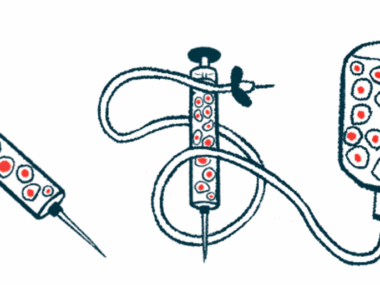Trial of Microbiota Transplant in Treating Patients Opens in Australia
Written by |

Jezper/Shutterstock
BiomeBank is launching a trial in Australia to test whether its fecal microbiota transplantation therapy, which works to replenish gut bacteria, is a safe, tolerable and effective treatment of Parkinson’s disease symptoms, such as constipation.
The trial is being conducted in collaboration with the Royal Adelaide and Queen Elizabeth hospitals and The Hospital Research Foundation (THRF) Group, and is currently recruiting participants for the study.
People with a confirmed diagnosis of idiopathic Parkinson’s (disease without a known cause) who enroll in the study will be given a six-month course of BiomeBank’s fecal microbiota transplantation (FMT) therapy. Eligible patients must be using levodopa, and experiencing a fluctuating response to this therapy.
For more information, those interested can contact Michele De Sciscio by phone at 0422 447 902, or email [email protected].
“This is an interventional clinical study which is an important first step for microbial drug development,” Robert Bryant, MD, co-founder and vice president of Translational Medicine at BiomeBank, and a gastroenterologist at The Queen Elizabeth Hospital, said in a press release.
An increasing number of studies have highlighted the importance of gut health and its possible connection to Parkinson’s. For example, constipation is estimated to affect 90% of all patients.
“Constipation is a common problem for many people with Parkinson’s and has a wider impact on the person’s health and wellbeing,” Bryant said.
Changes in the composition of gut microbiota, which consists of bacteria, fungi, and viruses found in the gastrointestinal tract, are thought to also influence Parkinson’s course and patient response to medications, including levodopa.
FMT is the transfer of stool from a healthy donor into the colon of a person with a disorder, to promote the growth of good bacteria in the intestine. According to BiomeBank, FMT will be investigated in this trial for its potential in relieving Parkinson’s symptoms by replenishing healthy gut bacteria.
“The aim of this trial is to meet an unmet medical need, exploring whether our microbial therapy is safe and tolerable in people with Parkinson’s disease. The study will also provide some preliminary information on whether FMT might improve motor and non-motor symptoms of Parkinson’s including constipation,” Bryant said.
The trial is being led by Thomas Kimber, an associate professor and neurologist at the Royal Adelaide Hospital, who will use dopamine transporter scans to examine the brain for abnormalities. Findings in this pilot study are expected to influence the design of future, larger studies.
Kevin Weeks, an Adelaide businessman, is financially supporting the trial through the THRF Group. Weeks, who has Parkinson’s, is on the board of the group’s charity, Parkinson’s SA.
“Gut health has been linked to so many conditions and it is exciting that a South Australian company might improve our understanding of this connection,” Weeks said. “I’m funding this trial because I want to back research that produces immediate improvements for people living with Parkinson’s.”
BiomeBank, a biotechnology company based in Adelaide, recently filed an application for regulatory approval in Australila of a first FMT therapy to treat ulcerative colitis, an inflammatory bowel disease, and Clostridioides difficile, a bacterium that causes diarrhea and inflammation of the colon.



